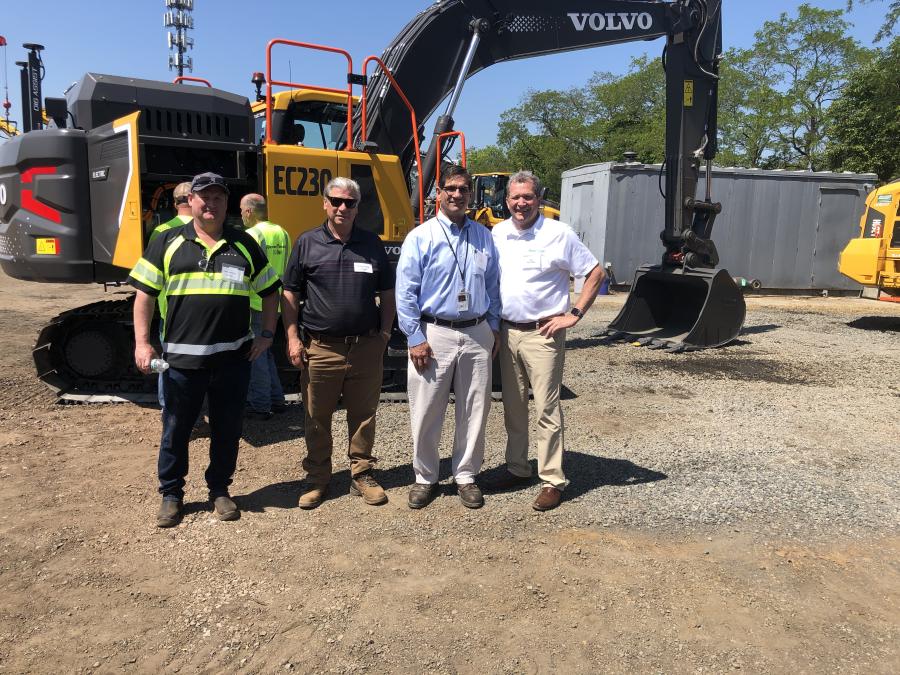
(L-R): Lars Arnold, product manager of Volvo CE; Bill Almasi of Almasi Companies; Chris Johnson, senior vice president of Tutor Perini; and Tim Watters, president of Hoffman Equipment, pose for a photo during the Volvo electric equipment demonstration event in Piscataway, N.J. (CEG photo)
Hoffman Equipment hosted a Volvo electric equipment demonstration event June 1 at the dealership's main location in Piscataway, N.J.
There, contractors from around the area had the opportunity to not only learn about how Volvo Construction Equipment's new electric models can help them do their jobs efficiently, productively and quietly, but also to get behind the controls of several different models.
"The message we are trying to send to our customers is not only technical information about the machinery itself — the advantages of electric vs. diesel power — but, more importantly, how Volvo has become the leader among all construction equipment manufacturers in the rapidly expanding electric-powered machine segment," said Tim Watters, president of Hoffman Equipment. "And, if Volvo has staked that leadership, then, we also need to be the leader among distributors."
He added that Hoffman Equipment wants its customers in New Jersey, New York and eastern Pennsylvania to understand that if they are in the market for a top-shelf electric machine to use on their job sites, either for a specific application where electric machines may work better than diesels, or simply because they want to run a more eco-friendly operation, Volvo and Hoffman Equipment have the best available models.
One of the star attractions at Hoffman Equipment's demo day was Volvo's new EC230 excavator, the first medium size, in-house designed electric excavator in the industry. The 27-ton machine is currently being rolled out in the United States, although it has been for sale in Europe for the past year or so, according to Watters.
It is powered by four 66 kW lithium-ion battery packs, resulting in zero direct emissions, less noise, reduced maintenance and lower total cost of ownership.
The Volvo excavator publicly displayed at Hoffman Equipment on June 1 had only arrived in the Piscataway store the day before and was one of only seven EC230s in the country at the time, but "another boat load of them is on its way" to the United States, Watters said.
"The EC230 is a 600-volt excavator, a commercially available machine that nobody else has in that size."
The mid-size excavator joins a stable of Volvo electric models that include several smaller machines being marketed in the United States, including three compact excavators, two compact wheel loaders and an asphalt roller due to come to market this fall.
Dan Hankinson, a technician of Hoffman Equipment, said that in the brief time the dealership has been marketing the Volvo electric machines, no issues have been reported with them.
"All the guys in the yard here are Level 4 technicians, so we can decommission a machine if it needs any kind of major repairs," he said. "The only difference with the Volvos is that the diesel engines have been replaced with electric ones. Performing diagnostics is a little different now because we must read amperages and things like that, and they have some hydraulic features, but besides that, everything else is the same. It's just new technology."
Volvo Partners With Mobile Battery Maker
Also on hand at the Hoffman Equipment event was Ray Gallant, vice president of product management of Volvo, to explain the capabilities of the company's electric construction equipment. In addition, he answered questions from contractors and operators about the brand's electric machines and reliance on rechargeable batteries.
One of his key topics was Volvo's use of a Voltstack 30k portable power station to charge a piece of construction equipment in the field. The unit is made by Portable Electric, a Canadian manufacturer partnering with Volvo to provide its customers with Voltstack charging stations.
"Here, we have the Voltstack hooked up to an electric car and to a Volvo electric machine to show that it is charging them both the same way using identical protocols," he said during the demonstration. "There are 80 kilowatt hours [kWh] of storage in the portable power unit. Volvo's compact excavator has a 20 kWh battery and the loader has 40 kWh in its battery, meaning the power station will charge two Volvo loaders or four small excavators a day."
The Voltstack has two alternating current (AC) charging ports, which makes the unit a slow, Level-2 charger, Gallant noted, from which a contractor can draw the power needed to run his or her job site, including lights, computers and cell phones, in addition to the Volvo excavators and wheel loaders.
"We are also working with Portable Electric to produce a fast-charge version of the Voltstack, so instead of an AC charger, it would be a direct current [DC] charge from battery to battery," he said.
Turning Skeptics Into Believers
The task now for Volvo and Hoffman Equipment, as well as any company in the electric vehicle industry, is getting the technology's skeptics to see its benefits, both to them and the planet.
What tends to pique the interest of old-school construction professionals when they check out these more technologically advanced machines, Watters was asked at the demo day event. Are they surprised to learn the comparable power of the electrics to the diesels, or that the length of time needed to charge an electric Volvo wheel loader is lower than what they may have heard?
"I would say that it probably has more to do with a specific application that drives them to say, ‘Hey, that could work for us,'" he said. "If, as a contractor, you are working on a job inside, like interior demolition, tunnel work, a transfer station — that type of work — electric obviously makes more sense than diesel. The companies that perform that work also have a financial reason to look at electric machines."
Watters added, though, that with electric construction equipment still in its infancy, the technology is being driven not by the contractor; rather, by his or her customers.
"There are many people out there that want to make a difference in terms of climate change, especially on the corporate level, and they are saying, ‘Hey, we have company policies now that we are trying to follow to make positive impacts on climate change. Therefore, we want our contractors using electric machines powered by reusable energy sources.'"
People concerned about the environment, especially in a congested metropolis like New York City, where many of Hoffman Equipment's customers work on building projects, understand the huge advantage that Volvo's electric excavators, loaders, and other pieces can make in such a setting, Watters noted.
Among the exhaust fumes and constant noise from other equipment within the city's endless canyons of tall buildings, Volvo's electric machines have a relatively light impact on New York's atmosphere.
"Let's say you are working to tear up or rebuild streets in a residential urban environment like Greenwich Village," Watters said. "If you are using these Volvo electric machines, they produce no noise or pollution to irritate the neighbors — it is dead quiet.
"If your customer wants that, you will need to come into Hoffman Equipment and figure out how to work electric machines into your fleet." CEG
Original Hoffman Chevy Pickup Truck Finds Its Way Back Home
People attending Hoffman Equipment's June 1 demo day for the new Volvo EC230 electric excavator and other models may have been surprised to see another vehicle on display in front of the Piscataway dealership, one that uses a far different technology from an electric machine.
But the cool part of this story is not that the 1949 Chevrolet pickup truck at Hoffman Equipment still runs and serves a useful purpose, according to the company's Tim Watters, but that it is back home after many years on the road.
In fact, this very truck was once part of the company's fleet of what we think of today as service vehicles. It was used for several years in the 1950s and '60s when the company was known as Hoffman Rigging and Crane Co., and even has the old name emblazoned on its side after than 70 years.
"Back then, though, we didn't have service vehicles like we have now because we were a rigging and crane business. Instead, companies had pickups simply to carry stuff around," Watters said.
For decades, though, the truck was lost to Hoffman Equipment after it was likely sold in the early 1960s, he believes.
"We don't know what happened or where it was for so long, but my cousin, who has worked at Hoffman Equipment and is familiar with the company, was recently online looking for antique cars," Watters said. "He happened to see it available for sale, called me and we practically ran down to Tennessee where it was being offered and bought the truck. We brought it up here and found that it still runs. It's a great truck."
When Watters and his cousin were down south to buy the 1949 Chevy truck, they initially decided not to tell the seller that their family were its original owners. After looking over a few other trucks on the lot, they finally closed the deal on the one they wanted. Only then did they tell the owner who they were and their connection to the pickup.
"He was surprised and shocked at first, saying, ‘Are you kidding me?' Then, as it sank in, he said he was thrilled that we got it back," said Watters.
With the old Hoffman Rigging and Crane pickup back in its original home, the truck now represents the connection between Hoffman Equipment's successful past and present.
Photo: 1/12
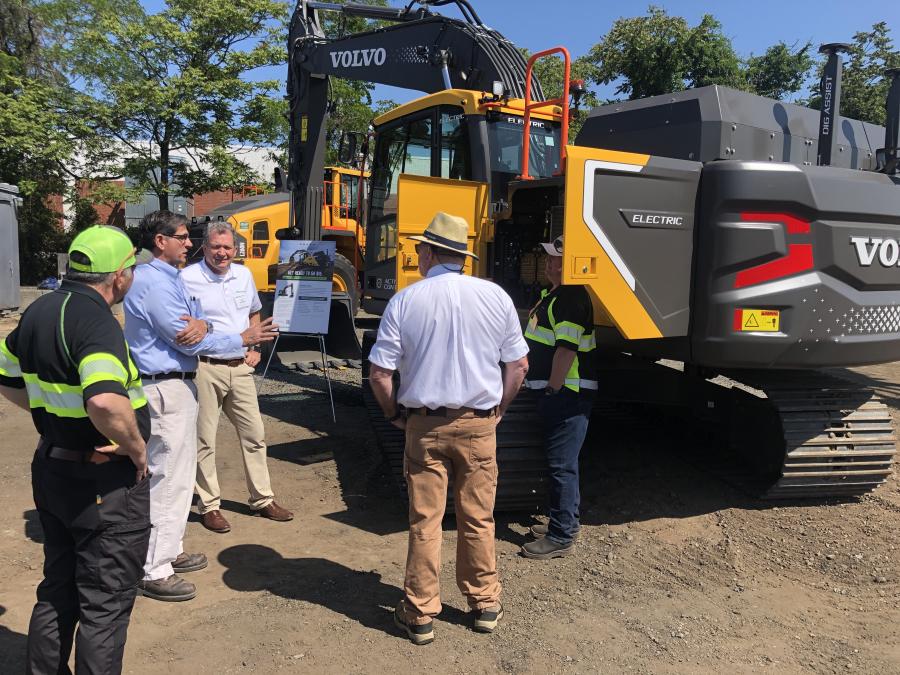
Photo: 2/12

Photo: 1/12
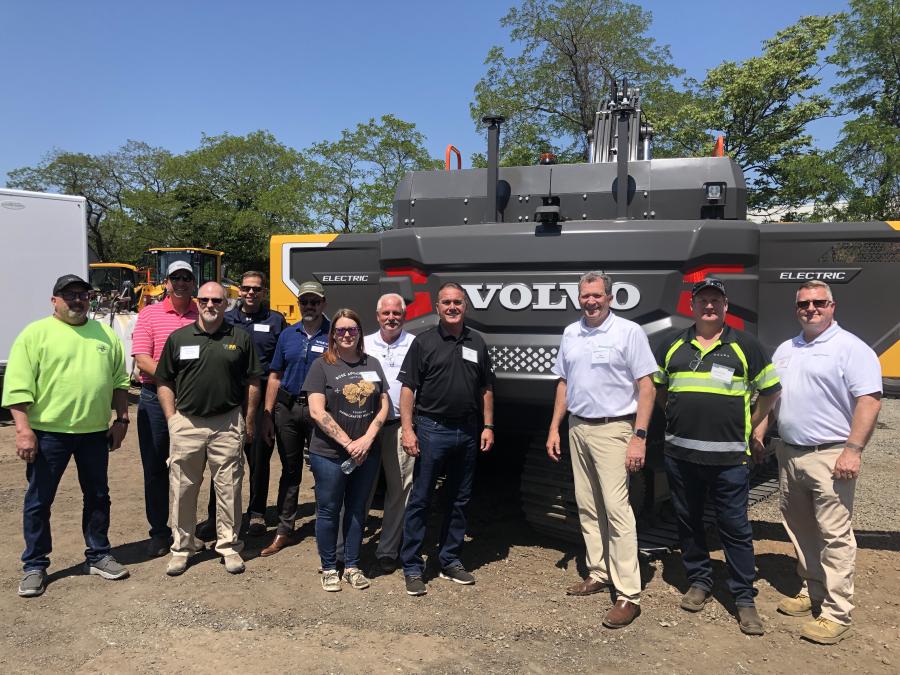
Photo: 1/12
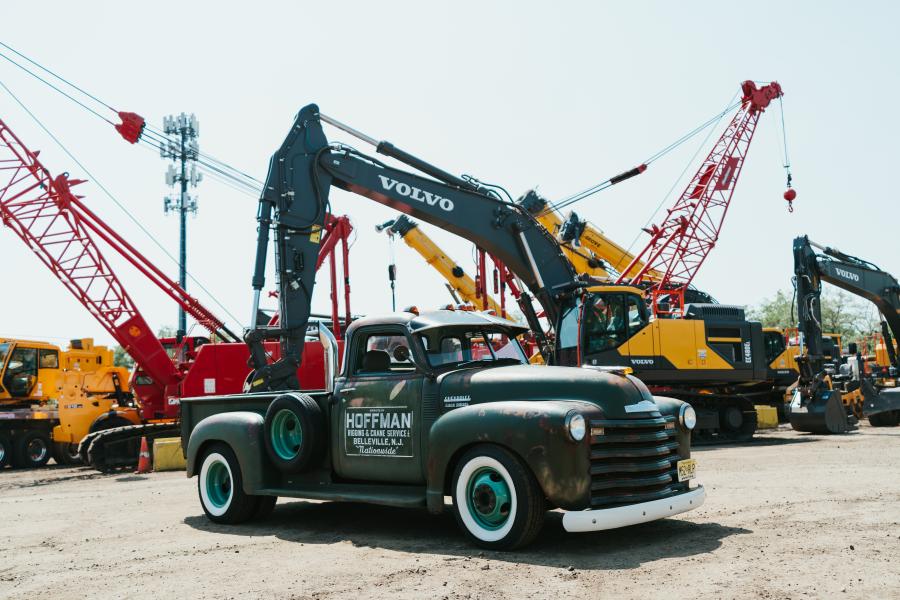
Photo: 1/12
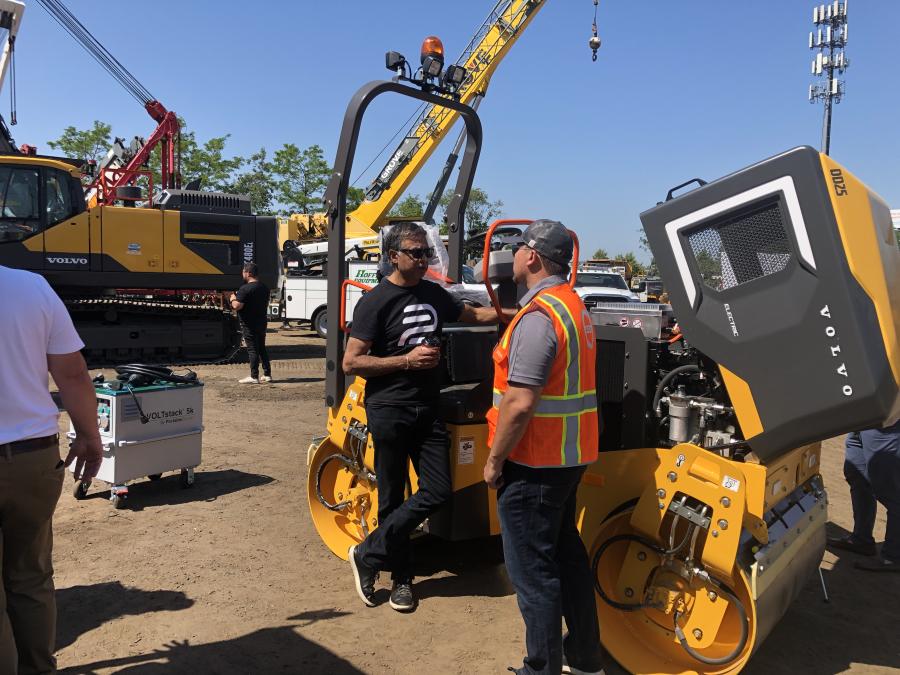
Photo: 1/12
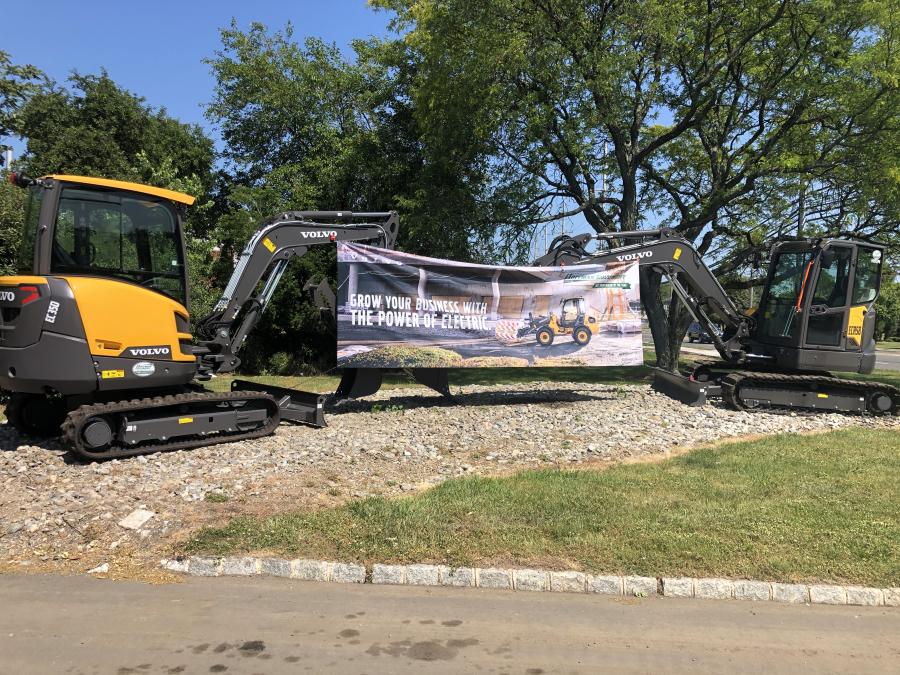
Photo: 1/12
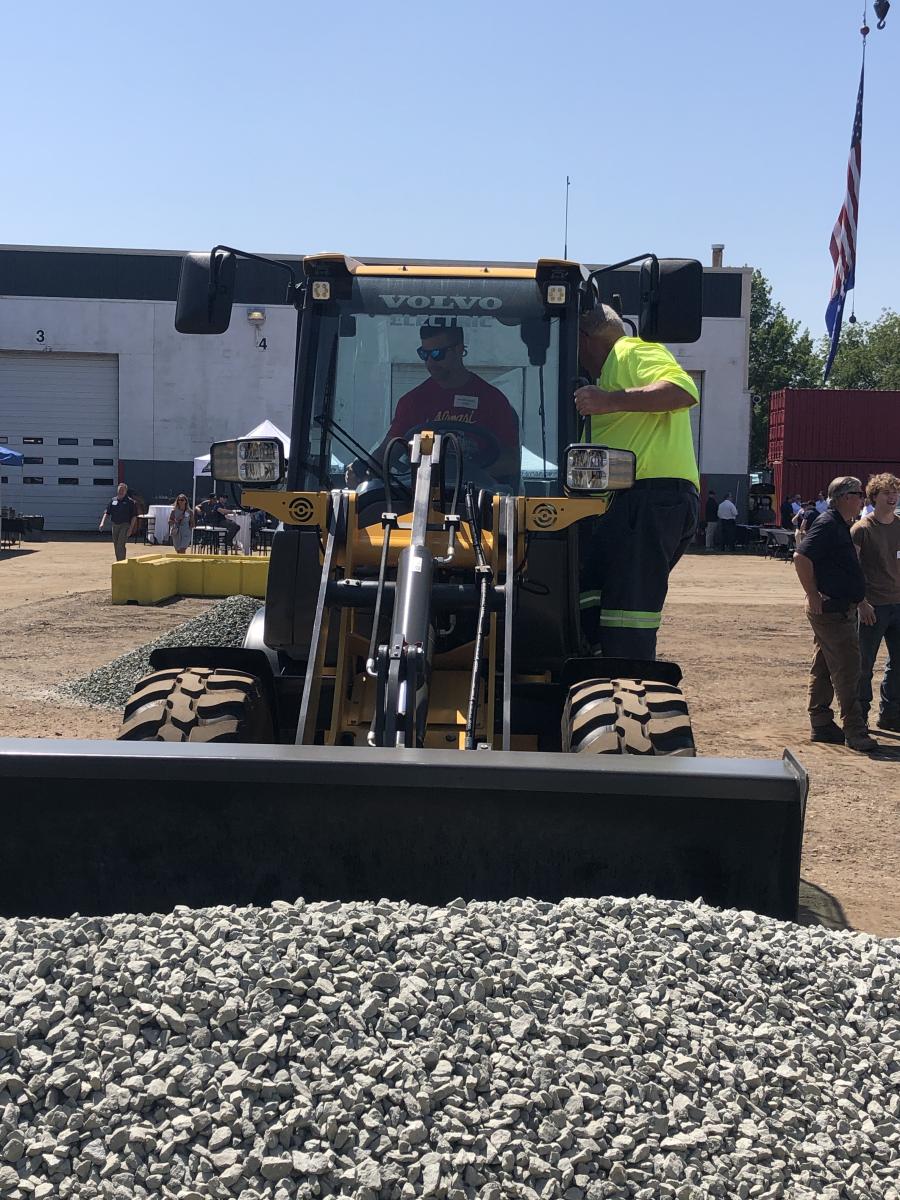
Photo: 1/12
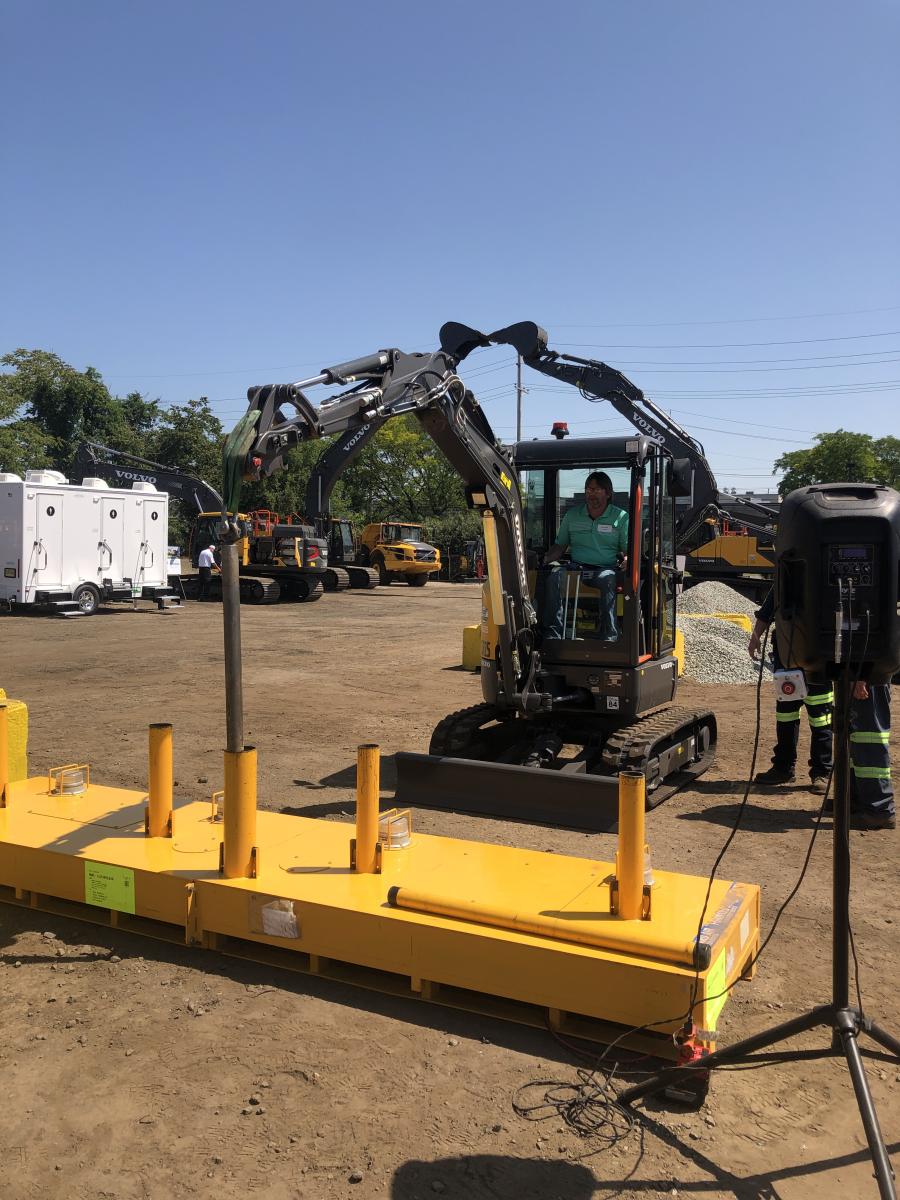
Photo: 1/12
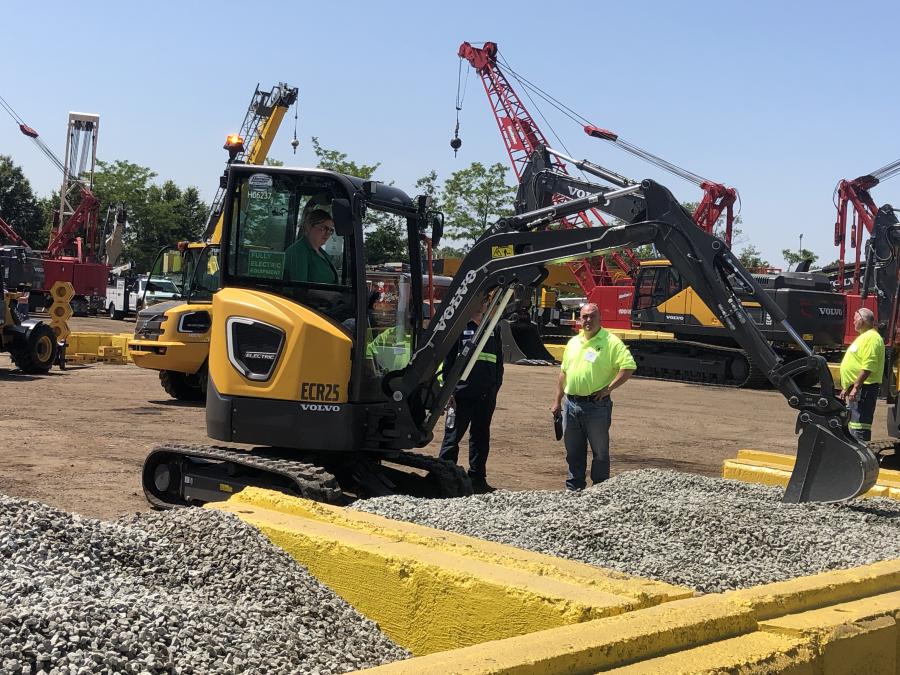
Photo: 1/12
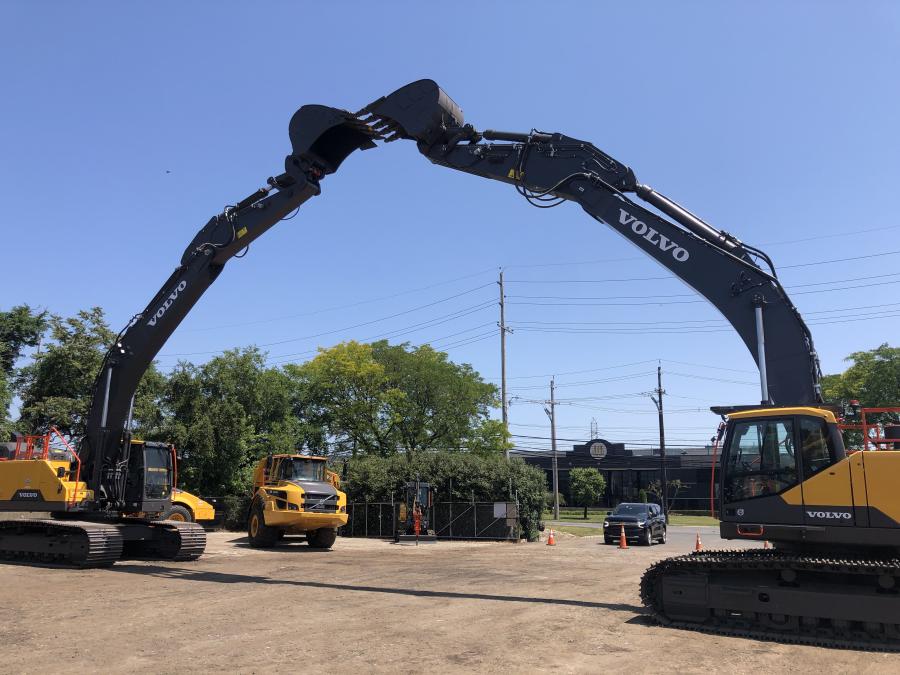
Photo: 1/12

Photo: 1/12
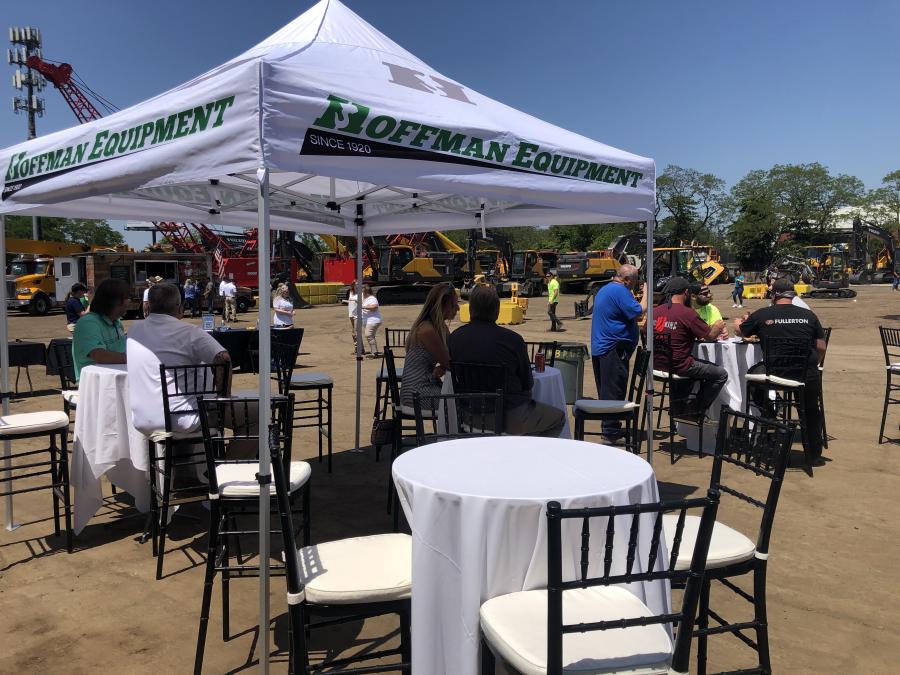
❮
❯
Tim Watters (third from L), president of Hoffman Equipment, speaks with customers about the Volvo EC230 electric midsize excavator.
(CEG photo)
Today's top stories






















